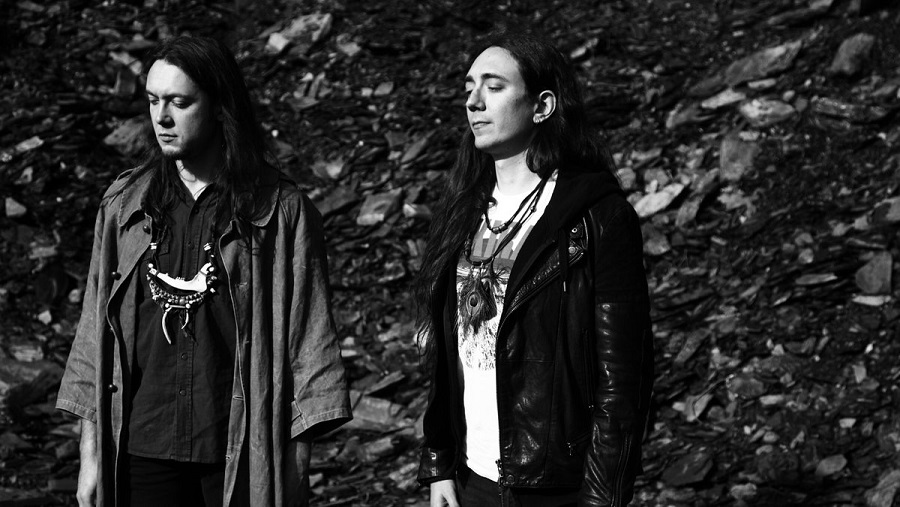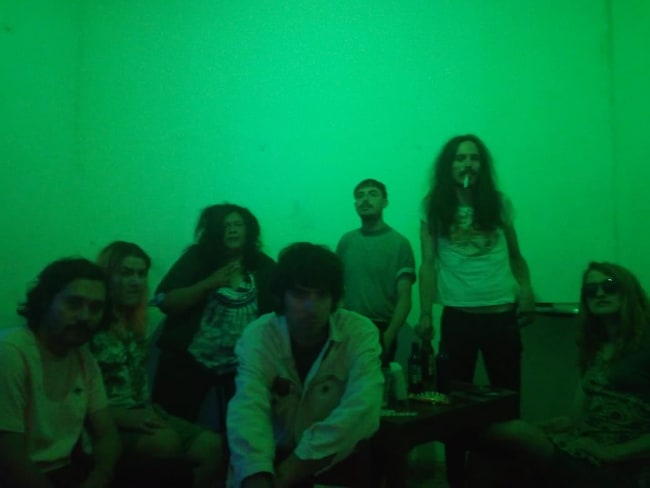“It’s been quite a steep path”, thinks Stéphane “Neige” Paut as he inks a contract with German metal giant Nuclear Blast. Twenty years have already passed since, as a teenager, Neige got the urge to share a spiritual jaunt he experienced as a child. The 15-year-old who hopped into the studio to record Alcest’s first demos, roughly carved in aggressive and fast black metal, would struggle to recognise himself in a 2019 where he is labelmates with Slayer fame.
But Alcest’s responsibility is not only that of offering a worthy follow-up to their critically acclaimed Kodoma, dropped already four years back. Neither does being signed by arguably the biggest metal label on Earth stir the band up. It is actually the weight of an entire music genre that Alcest bear on their shoulders what makes putting out new music a serious endeavour. The now well-known “blackgaze” style that’s been universally accepted by critics was originally a devise of Neige, for whom the thick line dividing the violence in black metal and the melodic dream-like soundscapes of shoegazing was rather blur. Although Le Sectret (2005) sparked a turmoil and Neige had to endure the expected loathing from black metal fans, nowadays Alcest proudly helm a whole scene of artists following their steps. Among them is Defheaven, whose successful LP Sunbather (2013) appears in the lists of racers for the “album of the decade” badge, according to music eggheads.
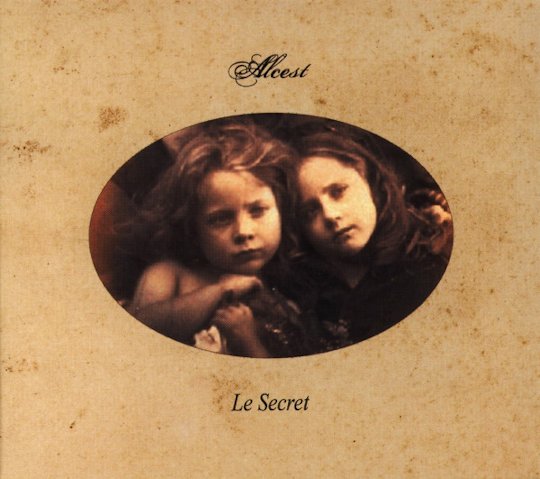
As a consequence, Alcest operate in the narrow gap between two genres, their albums being bought and judge by two utterly different worlds. Correspondingly, in Alcest everything is about balance. Nevertheless, whenever the band post a picture of a drum kit surrounded by microphones and other recording devices, the ultimate question comes to mind: in favour of which side will the scale be tilted? And Alcest’s announcement of the recording of a fresh album earlier this year was not different by any means.
Lots of things have change in the last four years since Kodoma appeared in the records crates. Kodoma saw the band’s return to their signature style, after having stripped it of any metal elements in their anyway well-received Shelter (2014). Alcest’s logo also became a fairly regular one in metal and non-metal festival lineups, including world’s biggest metal festival, Wacken, in 2016. The band’s popularity has simply grown in a rather natural way: there was no chart-topping hit, naughtily plotted collaboration with a trending artist or one-off “masterpiece” album that would’ve sparked Alcest’s success. Instead, Alcest climbed up slowly and steadily. However, one of the most memorable moments in this four-year journey was Alcest being picked by no other than The Cure‘s Robert Smith, to play in his personally-curated Meltdown Festival in London’s Queen Elizabeth Hall. Vowing to bring back rock music to the now hip-hop-dominated festivals in London, Robert Smith put Alcest in the same event with shoegaze fathers My Bloody Valentine. Alcest had reached a high rank position in the general rock community.
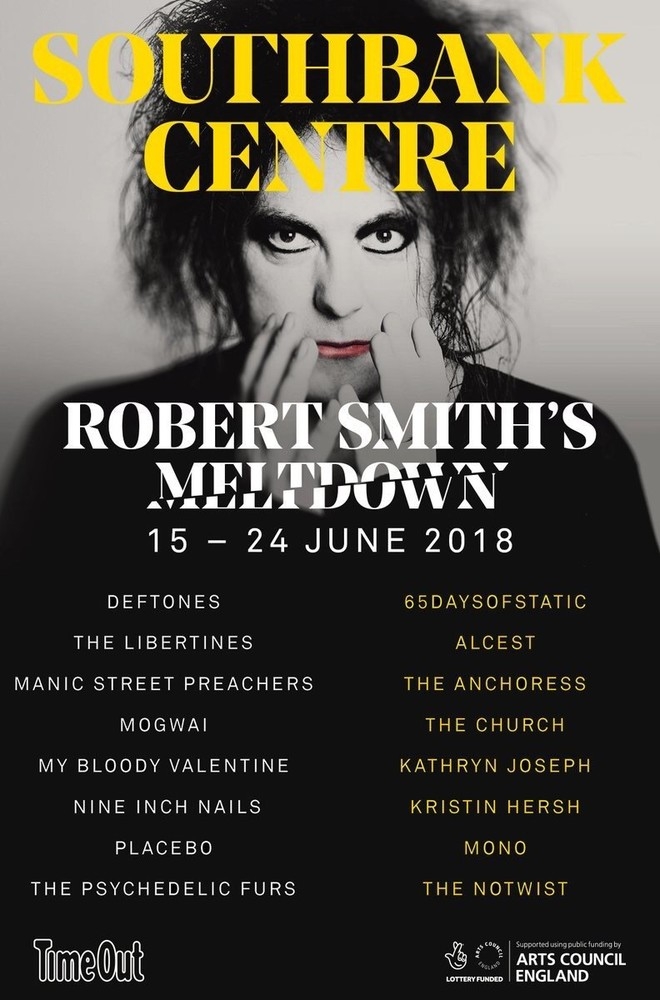
And it was this intense touring and busy schedule what, according to a recent interview, made Neige divert a little bit from the original path, the original idea of Alcest, an expression of his experiences from his dreams since he was a kid. After noting this, Neige would find himself writing songs that reflected more anger than usual. It was only then that Neige realised he had something he needed to put out through his music. The result is called Spiritual Instinct, Alcest’s sixth full-length album.
This new rage led to a more metallic album in juxtaposition to its predecessor, Kodoma. As a taste of this, Spiritual Instinct kicks off furiously with “Les Jardins De Minut”. Alcest don’t hesitate in drenching the first minutes of the album with hand-tiring tremolo picking and blast beats, confirming their black metal position. There are also plenty of Neige’s unique bleak screams throughout the album. But there’s a far-reaching difference between the metal presence haunting Spiritual Impact and Alcest’s first full-length output, game-changing Souvenirs d’un Autre Monde (2007): Alcest’s original balance between aggression and beauty was based on a mix of highly distorted riffs and clean (sometimes even acoustic) guitars, whilst in Spiritual Instinct a broader palette can be heard. Neige’s guitar work in this new album encompasses distorted tremolo picking aplenty, raw riffs, some guitar effects more typical in post-rock, e.g. high-pitch melancholic melodies, loads of clean guitars, a few shoegazing effects, etc.
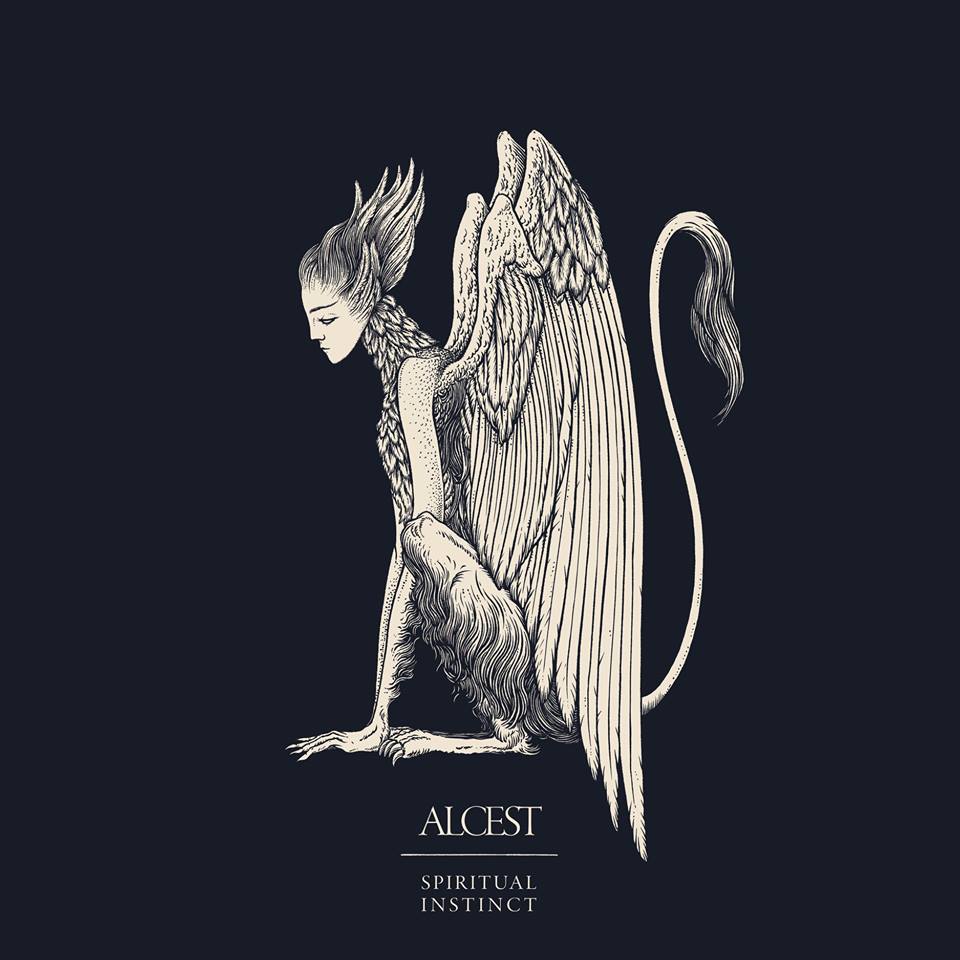
The more metallic sound in Spiritual Instinct is also bolstered by a fairly heavier bass which seems to play a more important role than in previous efforts. In addition, the recording quality has improved in Spiritual Instinct. The mix is flawless, being carried out by long-term co-worker Neb Xort of fiery Anorexia Nervosa. Remember how the snare drum was pulled back by the sore guitar riffs in the chorus of the opening track to Ecailles de Lune (2010)? Well, that’s gone. In Spiritual Instinct, drums sound cleaner, contributing to the metallic sound of the album. But don’t worry, Winterhalter’s drumming doesn’t have the machine-like sound typical of modern death metal bands exploiting triggered drums.
Winterhalter’s performance in the record becomes astonishing in epic track “L’île des Morts”, in which drums drive the experience with rhythms hardly explored in black metal. This song is embellished by the ghostly voice of Sylvaine, for whom Neige has supported behind the drum kit in her worth-checking discography. “L’île des Morts” is a dynamic track indeed, however, actually the whole album has this flavour of tirelessness. Neige explores his guitar skills and shows some sparks of progressive metal complexity in the riffs of first single “Protection”. In the same context, second single “Saphire” displays more energetic vocal arrangement in the verses. This sums up to an album that stands less atmospheric or simply «less slow» (I refuse to use the word “up-tempo” here) than usual.
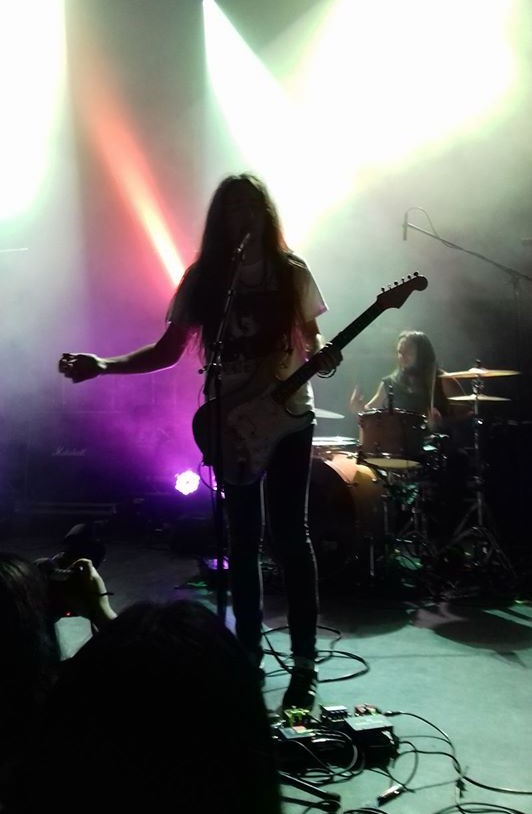
All in all, Spiritual Instinct allows the listener experiencing a fragile balance between the two contrasting big clusters Alcest belongs to. “Contrast” has been always the cornerstone of Alcest’s formula. The band’s wit is to pinpoint the balance between these conflicting elements and in Spiritual Instinct, Alcest tamed them all offering an almost flawless long-play. According to Neige, the song-writing process was faster than normal, however, what thus should’ve turned into a rough-edged output turned into a more visceral and honest record.
It was in April that Alcest announced they were parting ways with their so far only record label, Prophecy Productions. By then, the belief that Alcest were the banner carriers of the company had become quite a beyond-doubt fact. Prophecy’s roster, however, is normally well-represented by folk metal and neofolk legends Empyrium, who have been working with Prophecy since they debuted in 1996. I regard the metallic character of Spiritual Instinct a perfect fit in Nuclear Blast, a label that, unlike their Austrian competitor Napalm Records, rarely signs rock-oriented bands. During the days Alcest refused to reveal whom they had signed with, uncertainty made names like Third Man Records and even 4AD be whispered. I genuinely believe that the release of Spiritual Instinct was a smart move that will benefit Nuclear Blast, as it will doubtlessly be a must-include name in the lists of “best albums of 2019” to be thrown all over internet in the following few remaining weeks of the decade.
PABLO CUSTODIO

